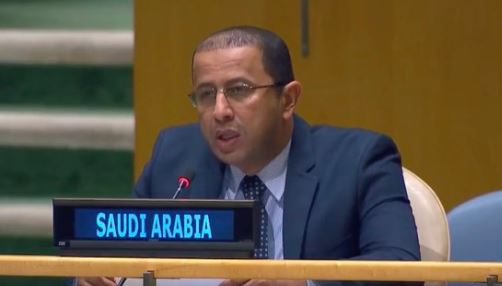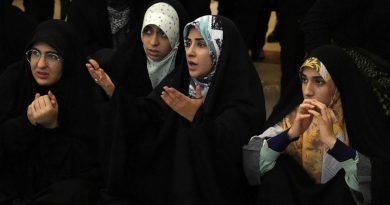Saudi envoy tells UN that combating Islamophobia is necessary for world peace.
New York – On Friday, Saudi Arabia urged all UN members to denounce violence against Muslims, support a culture of peace that rejects prejudice and extremism and encourages the respect that is necessary for coexistence and understanding.
Prior to the first International Day to Fight Islamophobia on March 15, Mohammed Alateek, the Kingdom’s deputy permanent representative to the UN, gave a speech at a high-level UN General Assembly event.
This included rhetoric that “leads to racial profiling, discrimination, negative stereotyping, and stigmatisation of Muslims,” according to organisers. It called for international cooperation in efforts to combat discrimination, xenophobia, intolerance, and violence against people based on their religion or beliefs.
They noted that another goal was to inspire worldwide dialogue that would foster a culture of tolerance based on respect for human rights.
Addressing on behalf of the Arab Group at the UN, Alateek said that the enormous attendance at the event on Friday in the Assembly Hall demonstrated the solidarity between Muslims and the larger international community in the battle against Islamophobia.
According to Alateek, the Arab Group believes that observing an international day to combat islamophobia will deepen communication, advance a culture of peace, and increase respect for human rights.
“This is an important occasion that allows us to highlight all of the manifestations of hatred and Islamophobia against Muslims, which sometimes lead to abominable acts, the (most recent) of which were (those) perpetrated in Sweden (by) a group of extremists,” he added.
Swedish police allowed a Danish far-right activist to hold a demonstration outside the Turkish Embassy in Stockholm in January during which he burned a copy of the Qur’an and made derogatory statements about immigration and Islam.
To “serve as a basis for the promotion of a culture of peace to combat discrimination and extremism and to strengthen dialogue between cultures and religions in order to establish peace and security and mutual respect,” Alateek urged the international community to denounce such extremist acts.
He continued by saying that this is a must for a climate that is supportive of peace and understanding on a regional and global scale.
On March 15, 2022, the General Assembly of the United Nations unanimously approved a resolution designating the day as the International Day to Fight Islamophobia. It was chosen as the anniversary of the shootings on two mosques in Christchurch, New Zealand, by a lone shooter in 2019, which resulted in 51 fatalities and 40 injuries.
The resolution’s text urged the international community to promote tolerance and peace that are grounded in observance of human rights and religious and philosophical diversity.
“We must combine our efforts, at the international level, to take strong measures to bring an end to prejudice, bigotry, and Islamophobia,” Alateek stated in reference to the resolution.
He reaffirmed the demand for all UN members to see that the resolution is carried out “in its totality, since it is a question of our shared civilisation and we have an obligation to resist prejudice based on religion,” speaking on behalf of the Arab Group.
During the ceremony on Friday, UN Secretary-General Antonio Guterres stated that although there are nearly 2 billion Muslims worldwide, they often experience intolerance and prejudice “for no other reason than their faith.”
He continued by saying that there is no denying the link between gender inequality and anti-Muslim prejudice.
The threefold discrimination against people based on their gender, ethnicity, and religion has some of the harshest effects, said Guterres to the assembly.
“The growing hate that Muslims face is not an isolated development. It is an inexorable part of the resurgence of ethno-nationalism, neo-Nazi white supremacist ideologies, and violence targeting vulnerable populations including Muslims, Jews, some minority-Christian communities, and others.”
He added that discrimination “diminishes us all and it is incumbent on all of us to stand up against it.”
Alateek praised the president of the General Assembly’s initiatives “to enhance the values of religious tolerance,” as well as those of the secretary-general and the UN’s Alliance of Civilizations office.
He continued by pointing out that the UN’s goals and guiding principles, which start with the pursuit of peace, security, and the preservation of human rights, include the need to combat Islamophobia.



